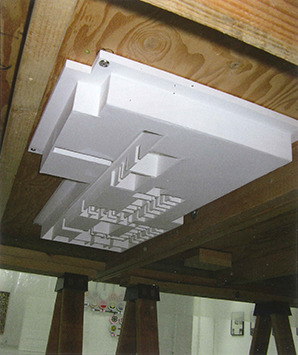
Explore the Relearn etherdump (or start with the appendindex)
Relearn is a summerschool which welcomes persons, artists, students, teachers from all backgrounds and disciplines. Participants will gather to learn from and teach to each other, beyond the traditional paradigms of education.
Free, Libre and Open Source Software plays a fundamental role at Relearn, as it facilitates a different approach to the tools we commonly use in our practices and lives. For instance, it can allow us to understand the influence that tools themselves exert on the way they are used, or the different social relations and economies that are formed between who creates and uses them. Such a questioning approach to technology feels urgent, in a time in which more and more social, political and personal issues are addressed by solely technological means.
In continuation with the previous editions, Relearn will research convivial, experimental and deviant methods and means in the fields of design, computing and education, challenging the normal roles and separations in them (teacher/student, developer/user, art/life...).
Practical
You are welcome to join Relearn from the 20th of August till the 25th.
It will take place in Bruxelles, at Zinneke (http://zinneke.org).
To participate, please send an e-mail to registration@relearn.be before July 1st, including a few lines about your interest in the summer school, what you want to bring, what you hope to find.
Please note that there is a limited number of places, and also mention if you need hosting during the week, or, in case you live in Brussels, if you can host someone at your place.

Tracks
-
Text generation project
How I Learned to Stop Worrying and Love the Algorithm.
Language practices are often ritualistic, what makes them predictable and open for automation. Legal, administrative or political language have magic-like qualities. Their words create realities or make things happening. Do they retain this quality when they get automated and become algorithmically reproducible? What qualitative change undergo such language practices when automated?
[This track is co-organised in close collaboration with the Training common sense-project and will partially overlap.]
http://pad.constantvzw.org/p/text_generation
-
Training common sense
Where and how can we find difference, ambiguity and dissent in pattern-recognition?
What kind of assumptions do we encounter when valuating information from the point of view of an algorithm? In what way does the introduction of pattern-recognition allow (or makes impossible) difference, ambiguity and dissent? Through exploring the actual math and processes of pattern-recognition together, and by studying and experimenting with software packages (Pattern, ...), methods and reference-libraries (WordNet. ...) we would like to understand better what agency human and computational actors might have in the co-production of 'common sense'.
[This track is co-organised in close collaboration with the Text generation project, and will partially overlap.]
http://pad.constantvzw.org/p/commonsense
-
Wirelessness
When speaking about invisible technologies radio is perhaps both the most invisible and yet the most present. At any given moment the air is filled signals ranging from cell phone packets, the chatter of bus drivers, commercial radio stations, wireless internet modems, airplane tracking signals, satellite broadcasts and much much more. The radio wave has interesting properties, signals can propagate across the earth, reach us from outerspace and transcend political borders. These signals, while physical and legistlated, are difficult to 'own' and in a way the 'hertzian space' can be interpreted as a commons, like the air we breathe and the water we drink.
http://pad.constantvzw.org/p/wirelessness
-
Data-/Network-/Film-City
The city is work of fact and fiction. It is the subject, protagonist and background of an omnivorous and polymorphic narrative. It is a collective piece written by the storytelling of novelists, historians and journalists. Its textual production is also found in daily diaries, in technical and bureaucratic reports, in advertisement and propaganda. The city is an anthology continuously integrated, revised, quoted and translated, reverberated in oral and non-verbal accounts, told in pictures, set in movies and combinations of old and new media. The city produces stories and is produced by stories. Narration represent both an inextricable substance and an essential dimension of urban reality.
http://pad.constantvzw.org/p/city
-
New visuals for quantified self data
The culturally con-structed body would be the result of a diffuse and active structuring of the social field. (Butler, 1989)
This topic proposes to explore the functioning of Social networks based on collected physical data, self tracking and health monitoring as they are expanding very much, and propose a very specific social context based on a quantified view of our bodies.
http://pad.constantvzw.org/p/data_games
-
Other possible transversal worksessions
On Trinary Logic, Water Computation and other abnormal approaches to computing
http://pad.constantvzw.org/p/trinary
Reroam II
http://osp.constantvzw.org:9999/p/reroam
Improvisation, for humans and automatons
http://pad.constantvzw.org/p/improvisation
